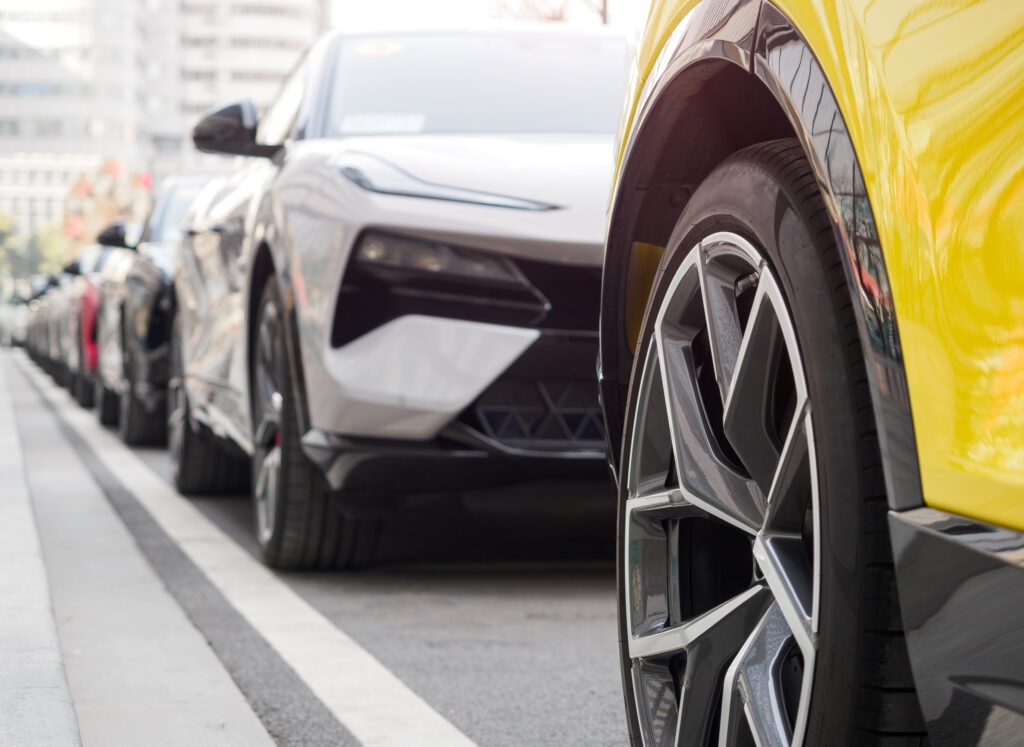German new-car market returned to downward trend in November
06 December 2023

The German new-car market recorded 245,701 deliveries in November, down 5.7% year on year. So, despite October’s growth providing an autumnal ray of hope, a dimmer industry trend was confirmed.
The latest figures from the Kraftfahrt-Bundesamt (KBA) confirm that 64.9% of all new-car registrations in November were commercial. However, this still represented a 4.1% fall on November 2022. Meanwhile, the private sector saw deliveries drop by 8.6% year on year.
When compared to the same period in 2022, year-to-date growth remained in the double digits at 11.4%. Over 2.6 million units took to the country’s roads between January and November this year.
Petrol pulls away
Petrol powertrains continued to lead the German new-car market in November. Accounting for 33.3% of registrations, 81,734 units featured the technology, up 12.5% year on year. Meanwhile, diesel fell by 1%, taking a 16.1% market share.
Combined, mild and full hybrids made up 24.6% of the market, with 60,463 new units taking to Germany’s roads. Meanwhile, 18,124 plug-in hybrids (PHEVs) were registered, taking a share of 7.4%. Fewer than 1,000 new cars were powered by liquid and natural gas, accounting for only 0.4% of the market.
Subsidy uncertainty
Registrations of battery-electric vehicles (BEVs) fell by 22.5% year on year, with 44,942 units delivered. This equated to a new-car market share of 18.3%. There were several major contributing factors to this decrease, including subsidy uncertainty.
‘The decline in new registrations of electric vehicles primarily reflects customers’ uncertainty regarding the subsidisation of electric vehicles in 2024,’ said Thomas Peckruhn, vice president of the ZDK. ‘We need reliable framework conditions here in the long term, otherwise the rapid ramp-up will fail.’
He pointed out that electric vehicles are also facing a difficult comparison against late last year. BEVs and PHEVs saw a spurt of registrations in November 2022 as customers and dealers raced to take advantage of remaining incentives. ‘When the subsidies expire, the demand for electromobility also drops,’ Peckruhn said.
A realistic goal?
The conversation of how Germany can reach 15 million BEVs by 2030 is ongoing. Lowering purchase costs is a large part of the discussion, with technological developments potentially holding the key to lower battery prices.
‘The federal government's goal of 15 million electric cars in Germany by 2030 is very ambitious. However, the German automotive industry expressly supports electric mobility as the central technology on the path to climate-neutral mobility and are pushing it forward with full force and high investments,’ said Hildegard Müller, president of the VDA.
‘Producing cars – and increasingly electric cars – is our core business. German manufacturers alone will produce significantly more than 15 million BEVs by 2030,’ she added. ‘It depends on the respective framework conditions in which markets these vehicles are sold.’
Müller explained that the competition between markets can be observed in the 77% export share of BEVs built in Germany. Carmakers from the country currently offer around 130 electric models globally. This means supply and production should not impact the 2030 goal.
Instead, Müller identified charging infrastructure as a key concern, stating the expansion of plug-in points must be intensified. ‘Three main factors are therefore the crucial ones: infrastructure, a policy that relies on incentives, and the corresponding usage costs (including the price of electricity),’ she said.
Pessimistic perspective
In its latest survey of automotive businesses in Germany, the ifo Institute found that while companies saw a slight improvement on October, sentiment was still down overall.
‘Companies in the automotive industry rate their current business situation as better than in the previous month, but are more pessimistic about the months ahead,’ said Anita Wölfl, a specialist at the ifo Centre for Industrial Organisation and New Technologies.
‘The German automotive industry is not emerging from its economic downturn,’ Wölfl pointed out. She outlined that assessments of business developments slumped significantly in June and have yet to bounce back.



